MINI Aceman vs VW ID.4 - Differences and prices compared
Compare performance (258 HP vs 340 HP), boot space and price (25500 £ vs 34600 £ ) at a glance. Find out which car is the better choice for you – MINI Aceman or VW ID.4?
Costs and Efficiency:
When it comes to price and running costs, the biggest differences usually appear. This is often where you see which car fits your budget better in the long run.
MINI Aceman has a evident advantage in terms of price – it starts at 25500 £ , while the VW ID.4 costs 34600 £ . That’s a price difference of around 9115 £.
In terms of energy consumption, the advantage goes to the MINI Aceman: with 14 kWh per 100 km, it’s slightly more efficient than the VW ID.4 with 15.60 kWh. That’s a difference of about 1.60 kWh.
As for electric range, the VW ID.4 performs distinct better – achieving up to 569 km, about 164 km more than the MINI Aceman.
Engine and Performance:
Power, torque and acceleration say a lot about how a car feels on the road. This is where you see which model delivers more driving dynamics.
When it comes to engine power, the VW ID.4 has a distinct edge – offering 340 HP compared to 258 HP. That’s roughly 82 HP more horsepower.
In acceleration from 0 to 100 km/h, the VW ID.4 is slightly quicker – completing the sprint in 5.40 s, while the MINI Aceman takes 6.40 s. That’s about 1 s faster.
In terms of top speed, the MINI Aceman performs hardly perceptible better – reaching 200 km/h, while the VW ID.4 tops out at 180 km/h. The difference is around 20 km/h.
There’s also a difference in torque: VW ID.4 pulls clearly stronger with 679 Nm compared to 350 Nm. That’s about 329 Nm difference.
Space and Everyday Use:
Beyond pure performance, interior space and usability matter most in daily life. This is where you see which car is more practical and versatile.
Both vehicles offer seating for 5 people.
In curb weight, MINI Aceman is a bit lighter – 1720 kg compared to 1975 kg. The difference is around 255 kg.
In terms of boot space, the VW ID.4 offers decisively more room – 543 L compared to 300 L. That’s a difference of about 243 L.
In maximum load capacity, the VW ID.4 performs noticeable better – up to 1575 L, which is about 570 L more than the MINI Aceman.
When it comes to payload, VW ID.4 slight takes the win – 551 kg compared to 530 kg. That’s a difference of about 21 kg.
Who comes out on top?
Overall, the VW ID.4 shows itself to be is largely superior and secures the title of DriveDuel Champion.
It convinces with the more balanced overall package and proves to be the more versatile choice for everyday use.
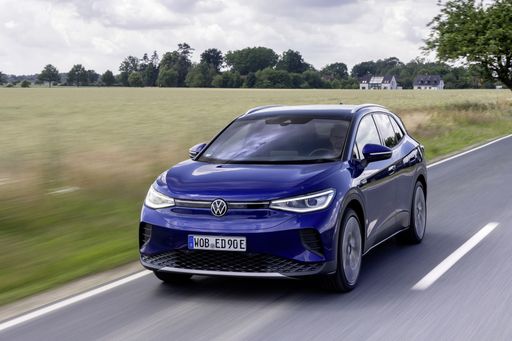
VW ID.4
Costs and Consumption
View detailed analysis
Engine and Performance
View detailed analysis
Dimensions and Body
View detailed analysis
MINI Aceman
The MINI Aceman squeezes classic MINI charm into a sharper, more crossover-ready shape, trading some of the old curves for grown-up practicality while keeping the wink-and-grin personality buyers crave. Inside it's a surprisingly premium, customizable cabin that feels clever rather than cluttered, and on the road the Aceman is eager and nimble — ideal for city dwellers who want an SUV silhouette with proper fun behind the wheel.
details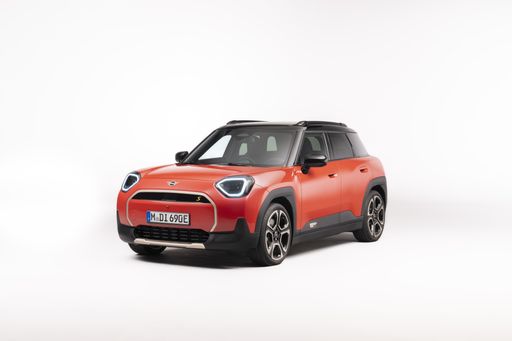
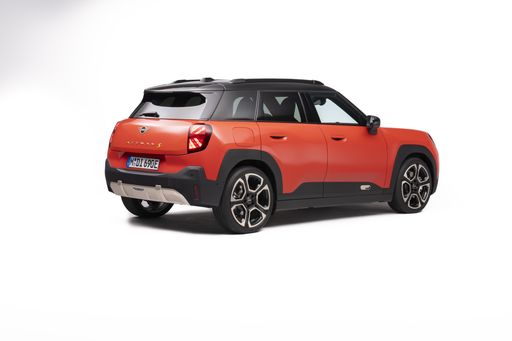
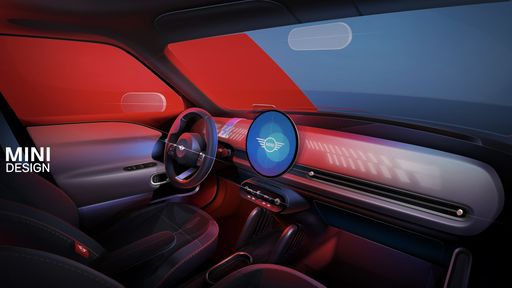
VW ID.4
The VW ID.4 is a calm, roomy electric SUV that turns everyday driving into a quietly confident experience, its practical packaging and smooth manners tailored perfectly for family life. Volkswagen's solid build and intuitive interior tech mean you get electric practicality without the sci‑fi theatrics, making the ID.4 a sensible, surprisingly likable choice for most buyers.
details
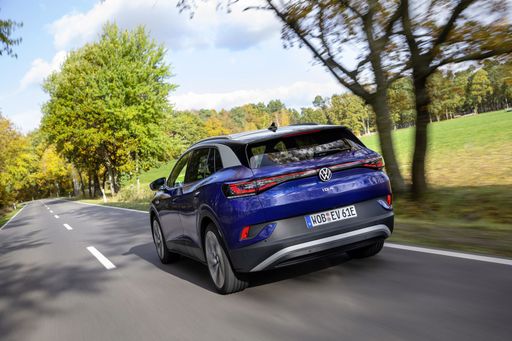
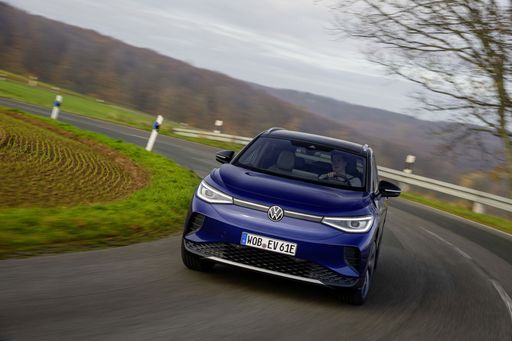
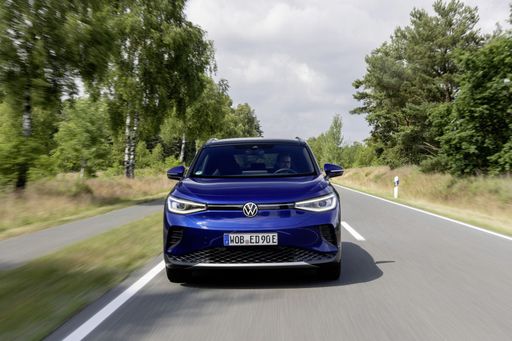
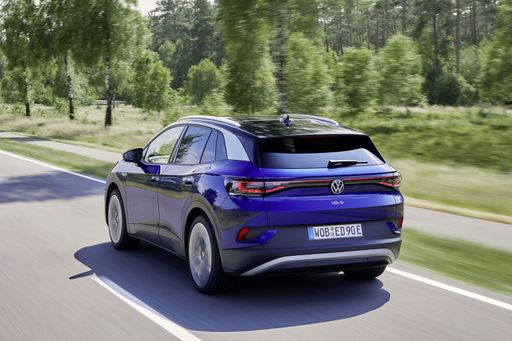

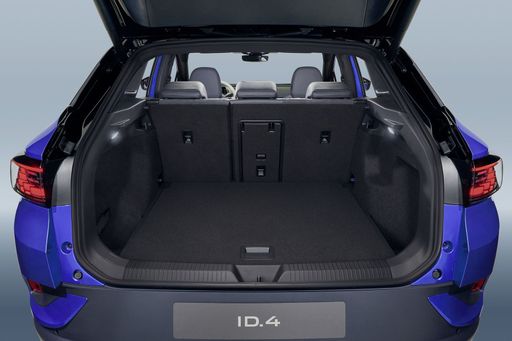
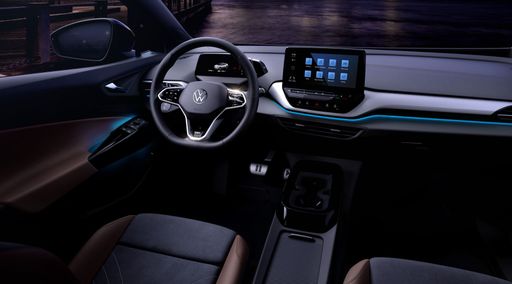
Costs and Consumption |
|
|---|---|
|
Price
25500 - 36200 £
|
Price
34600 - 47200 £
|
|
Consumption L/100km
-
|
Consumption L/100km
-
|
|
Consumption kWh/100km
14 - 16 kWh
|
Consumption kWh/100km
15.6 - 17 kWh
|
|
Electric Range
303 - 405 km
|
Electric Range
356 - 569 km
|
|
Battery Capacity
38.5 - 49.2 kWh
|
Battery Capacity
52 - 77 kWh
|
|
co2
0 g/km
|
co2
0 g/km
|
|
Fuel tank capacity
-
|
Fuel tank capacity
-
|
Dimensions and Body |
|
|---|---|
|
Body Type
SUV
|
Body Type
SUV
|
|
Seats
5
|
Seats
5
|
|
Doors
5
|
Doors
5
|
|
Curb weight
1720 - 1825 kg
|
Curb weight
1975 - 2248 kg
|
|
Trunk capacity
300 L
|
Trunk capacity
543 L
|
|
Length
4079 mm
|
Length
4582 - 4584 mm
|
|
Width
1754 mm
|
Width
1852 mm
|
|
Height
1514 mm
|
Height
1619 - 1634 mm
|
|
Max trunk capacity
1005 L
|
Max trunk capacity
1575 L
|
|
Payload
450 - 530 kg
|
Payload
515 - 551 kg
|
Engine and Performance |
|
|---|---|
|
Engine Type
Electric
|
Engine Type
Electric
|
|
Transmission
Automatic
|
Transmission
Automatic
|
|
Transmission Detail
Reduction Gearbox
|
Transmission Detail
Reduction Gearbox
|
|
Drive Type
Front-Wheel Drive
|
Drive Type
Rear-Wheel Drive, All-Wheel Drive
|
|
Power HP
184 - 258 HP
|
Power HP
170 - 340 HP
|
|
Acceleration 0-100km/h
6.4 - 7.9 s
|
Acceleration 0-100km/h
5.4 - 9 s
|
|
Max Speed
160 - 200 km/h
|
Max Speed
160 - 180 km/h
|
|
Torque
290 - 350 Nm
|
Torque
310 - 679 Nm
|
|
Number of Cylinders
-
|
Number of Cylinders
-
|
|
Power kW
135 - 190 kW
|
Power kW
125 - 250 kW
|
|
Engine capacity
-
|
Engine capacity
-
|
General |
|
|---|---|
|
Model Year
2024 - 2025
|
Model Year
2023 - 2025
|
|
CO2 Efficiency Class
A
|
CO2 Efficiency Class
A
|
|
Brand
MINI
|
Brand
VW
|
Is the MINI Aceman offered with different drivetrains?
The MINI Aceman is available as Front-Wheel Drive.




